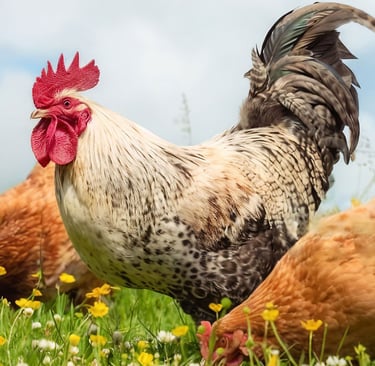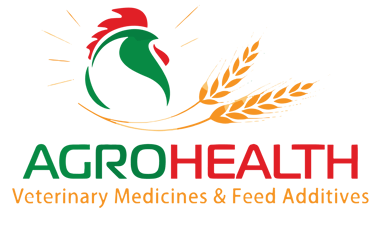The Importance of Poultry Farming in Achieving Food Security
Poultry farming plays a crucial role in ensuring food security around the world.
POULTRY
Dr. Osama Abbas Ayoob
3/13/20253 دقيقة قراءة


Poultry farming plays a crucial role in ensuring food security around the world. As global populations continue to grow, the demand for affordable, high-quality protein increases. Poultry farming offers a sustainable solution to meet this demand while supporting local economies and promoting efficient agricultural practices.
A Reliable Source of Nutrients
Poultry products such as chicken meat and eggs are rich in protein, essential vitamins, and minerals. These nutrients are vital for maintaining a healthy diet and supporting the growth and development of individuals of all ages. In many regions, poultry is the most accessible and affordable source of animal protein, making it a key factor in reducing malnutrition and enhancing food security.
High Protein Content: Poultry provides a complete source of protein, necessary for muscle development and overall health.
Essential Nutrients: Eggs and meat contain vitamins such as B12 and D, along with minerals like iron and zinc.
Economic and Social Benefits
Beyond its nutritional advantages, poultry farming contributes significantly to the economy. It creates job opportunities in both urban and rural areas, ranging from small-scale family farms to larger commercial operations. This economic activity helps reduce poverty and improves living standards in communities.
Job Creation: Poultry farming supports a variety of roles, including farm workers, feed producers, and supply chain managers.
Local Economic Growth: Income generated from poultry farming circulates within the community, boosting local businesses and services.
Empowerment of Small-Scale Farmers: Poultry farming requires relatively low capital investment, allowing small farmers to participate and thrive in the market.
Sustainability and Efficiency in Production
One of the key strengths of poultry farming is its efficiency and sustainability. Compared to other livestock, poultry requires less space, water, and feed to produce the same amount of protein. This efficiency makes it an environmentally friendly option that can be scaled up to meet increasing food demands.
Rapid Growth Cycle: Chickens and other poultry species have short production cycles, which allows for quick turnaround and continuous supply.
Lower Resource Requirements: Efficient feed conversion rates mean that less feed is needed to produce meat and eggs, reducing the overall environmental impact.
Adaptability: Poultry farms can be established in various settings, including urban areas, which helps to decentralize food production and reduce transportation costs.
Addressing Global Food Security Challenges
Food security is not just about producing enough food—it is also about ensuring that food is accessible, safe, and nutritious. Poultry farming addresses these challenges by:
Providing Affordable Protein: The relatively low cost of poultry products makes them accessible to a large portion of the population.
Supporting Community Resilience: By empowering small-scale farmers and creating local jobs, poultry farming strengthens community resilience against economic shocks.
Enhancing Nutritional Diversity: Poultry products add diversity to diets, contributing to better health outcomes and improved quality of life.
Overcoming Challenges and Embracing Innovation
Despite its many advantages, poultry farming faces challenges such as disease outbreaks, fluctuating feed prices, and the need for sustainable practices. However, ongoing research and technological advancements are continually improving the efficiency and safety of poultry production. Modern biosecurity measures, better nutritional formulations, and automated farm management systems are all contributing to a more resilient industry.
Disease Management: Improved vaccination and biosecurity practices help reduce the risk of disease outbreaks.
Technological Advancements: Automation and data-driven farm management systems increase production efficiency and reduce labor costs.
Sustainable Practices: Research into alternative feed ingredients and waste management solutions supports long-term sustainability.
Conclusion
Poultry farming is a cornerstone of global food security. Its ability to provide affordable, nutrient-rich food while supporting economic growth and sustainable agricultural practices makes it indispensable. As the world faces increasing challenges related to food production and resource management, investing in and modernizing poultry farming will be key to building a secure and resilient food system for future generations.
By promoting efficient production, supporting local economies, and delivering high-quality nutrition, poultry farming not only meets immediate dietary needs but also contributes to long-term food security worldwide.




